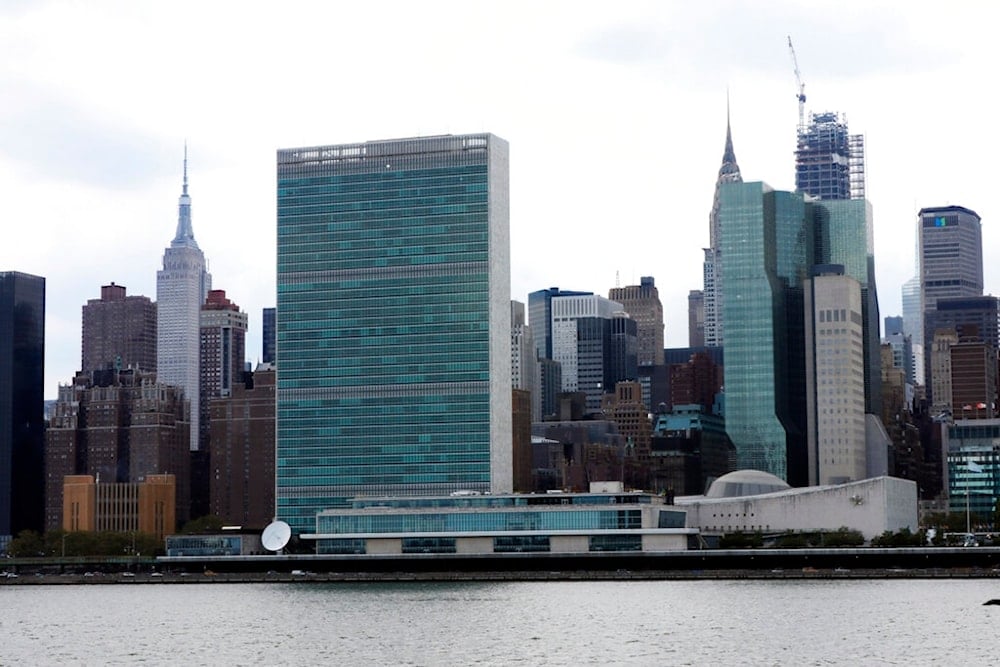UN responds to Musk's call for defunding: 'Fund the UN'
The United States is the largest single contributor, accounting for 22% of the regular budget and nearly 27% of peacekeeping costs.
-

The United Nations complex and Empire State Building, left, as seen from the Long Island City neighborhood of the Queens borough of New York, Thursday, Aug. 22, 2019. (AP Photo/Richard Drew)
United Nations spokesperson Stéphane Dujarric responded Tuesday to criticism from Elon Musk, who had called for the international body to be defunded. When asked by a journalist about Musk's remarks, Dujarric replied succinctly, "Fund the UN."
The Tesla and SpaceX CEO made his comments after reposting a claim that the UN had "just declared war on free speech," accompanied by a video of Secretary-General António Guterres warning about the dangers of misinformation on digital platforms.
Guterres had called for stronger governance of online content to prevent the spread of falsehoods and harmful narratives, a stance Musk views as a threat to open expression.
Funding crisis
This exchange comes as the UN grapples with major financial strain. The organization relies on two primary funding sources: assessed contributions from member states, mandatory payments based on each country's economic strength, and voluntary contributions targeted at specific UN programs.
The United States is the largest single contributor, accounting for 22% of the regular budget and nearly 27% of peacekeeping costs.
However, Washington has recently withheld around $1.5 billion in dues, contributing to a deepening budget crisis that could result in up to 20% staff reductions across the UN system.
Speech clash
Musk’s critique of the UN is part of a broader pattern in which he has clashed with international institutions over so-called "free speech and platform governance." As the owner of X (formerly Twitter), Musk has positioned himself as a staunch advocate of minimal content moderation.
This has brought him into direct conflict with the European Union, which is enforcing its Digital Services Act (DSA), a regulation requiring tech platforms to tackle illegal content and disinformation.
EU regulators have accused X of failing to comply and launched investigations into whether its algorithms are amplifying far-right content, including posts shared by Musk himself.
Read more: EU probes Apple, Google, Meta under new digital law

 2 Min Read
2 Min Read










